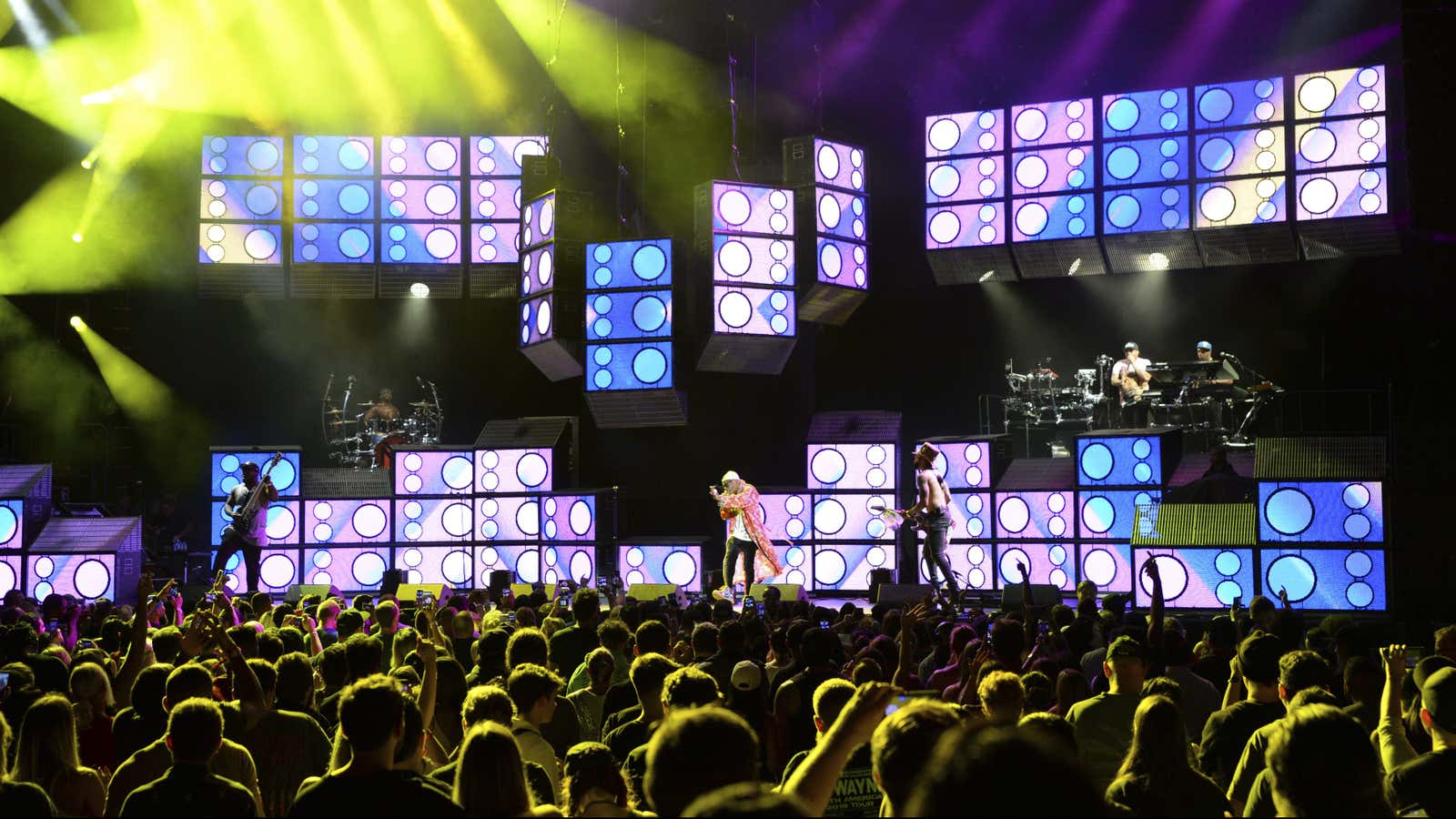For most people, going to a concert is a group experience. Over 80% of all ticket purchases are for at least two people, according to data provided on US and Canadian concert-goers to Quartz from the ticket marketplace Vivid Seats. Most often, those tickets are purchased in pairs, but 13% are for four tickets or more.
Yet some concertgoers refuse to miss out, even if nobody can join them. The willingness to buy a single ticket seems to largely depend on the type of concert. Overall, only 16% of purchases on Vivid Seats are for single tickets. That number is much higher for certain genres.
Hip hop (31.5%), Korean pop (26.8%) and alternative (23.1%) are well above the average in terms of single tickets purchases. This compares to just 5.9% of opera tickets and 6.8% of world music tickets bought as a single. The data are for purchases from 2015 to 2019.
After the collapse of CD sales in the early 2000s, live music revenues became increasingly important to the US music industry. This has been particularly true for the biggest acts, like Taylor Swift and Beyonce (paywall). Understanding ticket purchasing habits across genres is now essential for the industry.
Don Cusic, a music-business professor at Belmont University, points out that part of the difference across genres is likely a result of demographics. He believes willingness to go see a concert alone goes down as you age. Fans of opera, world music, and classical are generally older, and are more likely to see music with a partner or friends. Hip hop, Korean pop and alternative fans tend to be younger, and perhaps more passionate. If no one will join them, they might just go it alone.
Another reason single ticket purchases may be so high for certain genres is that they are more likely to have general admission tickets, says Michael Garcia, a professor music business at the University of Southern California. Hip hop shows and alternative concerts are more likely to have a standing section than blues and jazz and classic. As a result people can buy their own ticket, and still meet up with friends. He also points out that these data are only for the secondary market, and it’s possible that fewer single tickets are purchased from the original seller, because presumably ticket scalpers don’t buy one ticket at a time.
Garcia also thinks that the idiosyncrasies of certain fanbases results in differences in purchasing trends. He says Korean pop fans in the US tend to be particularly passionate, often purchasing a ticket for each show when a famous group like BTS for Blackpink plays multiple nights in their city. He imagines that enthusiasm might mean they are particularly willing to go to show alone. Country music shows are known in the industry as being group events, so Garcia was not surprised to that 15.4% of country and folk tickets are bought in groups of four or more, the second highest after world music (17.5%). Garcia also though it notable that 73.2% of blues and jazz tickets are bought in pairs, suggesting this is an event for dates.
